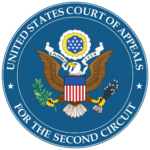United States Court of Appeals for the First Circuit
Order Implementing Procedures for the Filing of Highly Sensitive Documents
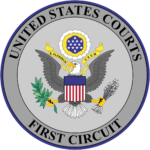 On February 9, 2021, the United States Court of Appeals for the First Circuit issued this order implementing new procedures for the filing of highly sensitive documents (HSDs).
On February 9, 2021, the United States Court of Appeals for the First Circuit issued this order implementing new procedures for the filing of highly sensitive documents (HSDs).
HSDs are documents containing information that is likely to be of interest to the intelligence service of a foreign government and the use or disclosure of such information by a hostile foreign government would likely cause significant harm to the United States or its interests.
If a document qualifies as an HSD as that term is described above, a filer is required to file a motion to treat that document as an HSD. The movant must serve the motion and the proposed HSD on all other parties by mail with proof of service under Fed. R. App. P. 25(d)(1). The motion and each proposed HSD should be conspicuously marked as a “HIGHLY SENSITIVE DOCUMENT” and placed inside an envelope marked “HIGHLY SENSITIVE.” The motion to treat a document as an HSD should be filed contemporaneously with the filing of a motion to seal the document and should be filed in paper format only under the procedures and requirements of 1st Cir. R. 11.0(c).
***
CJA Hourly Rates and Case Maximum Increases
Effective January 1, 2023, the Criminal Justice Act (CJA) panel attorney hourly rates and case compensation maximums for certain appeals have increased, as provided in the attached memorandum.
The CJA panel attorney rates for work performed on or after January 1, 2023 have increased to $164 per hour for non-capital cases and to $210 per hour for capital cases. In cases where the appointment of counsel occurred before this effective date, the new compensation rates apply to that portion of services provided on or after January 1, 2023.
United States Court of Appeals for the Second Circuit
Application For Service On CJA Panel – The Criminal Justice Act Committee of the United States Court of Appeals for the Second Circuit is accepting applications for service on the Court’s Criminal Justice Act Panel. For announcement click here. For application click here.
***
A three-judge panel of the U.S. Court of Appeals for the Second Circuit has unanimously ruled that the CFPB’s funding structure does not violate the Appropriations Clause of the U.S. Constitution. In its decision, the panel expressly declined to follow the Fifth Circuit panel decision in Community Financial Services Association of America Ltd. v. CFPB that reached the opposite conclusion. Last month, the U.S. Supreme Court granted the CFPB’s certiorari petition seeking review of the Fifth Circuit decision and agreed to hear the case next Term.
United States Court of Appeals for the Third Circuit
Comment Period Closes for New Filing Deadline Rules
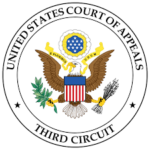 On March 3, 2023, the public comment period closed for the Third Circuit’s proposed changes to L.A.R. 26.0 and L.A.R. 113.3. If adopted, the filing deadline would move from midnight to 5:00 p.m. Eastern. Documents received after 5:00 p.m. Eastern “will be filed as of the next day the clerk’s office is open[.]” Documents e-filed after 5:00 p.m. Eastern on the last day for filing will be untimely.
On March 3, 2023, the public comment period closed for the Third Circuit’s proposed changes to L.A.R. 26.0 and L.A.R. 113.3. If adopted, the filing deadline would move from midnight to 5:00 p.m. Eastern. Documents received after 5:00 p.m. Eastern “will be filed as of the next day the clerk’s office is open[.]” Documents e-filed after 5:00 p.m. Eastern on the last day for filing will be untimely.
The revised Rules would conform to recent proposals by Chief Judge Michael Chagares to reconsider the advisability of having the “virtual courthouse” remain open until midnight. Judge Chagares notes that the later deadline “may impact the quality of life” of legal workers, and that permitting evening filings for ECF users might be unfair to non-ECF users like pro se litigants.
Watch this Newsletter for updates on application of these new Local Rules.
United States Court of Appeals for the Fourth Circuit
Upcoming Special Oral Argument Sessions to be Held at Marshall University and Appalachian School of Law
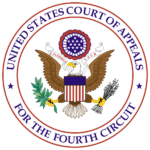 On March 22, 2023, the United States Court of Appeals for the Fourth Circuit will hold a special, offsite oral argument session at Marshall University in neighboring West Virginia. The Fourth Circuit’s announcement, hearing schedule, and attendance instructions for the special session can be found here:
On March 22, 2023, the United States Court of Appeals for the Fourth Circuit will hold a special, offsite oral argument session at Marshall University in neighboring West Virginia. The Fourth Circuit’s announcement, hearing schedule, and attendance instructions for the special session can be found here:
https://www.ca4.uscourts.gov/cal/internetcalMar222023mar.pdf
On April 13, 2023, the United States Court of Appeals for the Fourth Circuit will be hold a special, offsite oral argument session at Appalachian School of Law in Virginia. The Court’s announcement, hearing schedule, and attendance instructions for the special session can be found here: https://www.ca4.uscourts.gov/cal/internetcalApr132023ASL.pdf
United States Court of Appeals for the Fifth Circuit
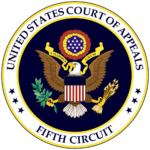 The deadline for comments to the Fifth Circuit’s proposed local Rule 35.6 was March 13, 2023. The proposed Rule changes the language to read that senior circuit judges may elect to participate, or continue to participate, in the decision of a case or controversy that was heard or reheard by the court en banc, of which they were a member and such judge was in regular active service.
The deadline for comments to the Fifth Circuit’s proposed local Rule 35.6 was March 13, 2023. The proposed Rule changes the language to read that senior circuit judges may elect to participate, or continue to participate, in the decision of a case or controversy that was heard or reheard by the court en banc, of which they were a member and such judge was in regular active service.
In addition, the Court recently amended local Rule 47.5.4 to read that the first page of an unpublished opinion should now note that it is not designated for publication, rather than the previous language stating that the “opinion should not be published and is not precedent except under the limited circumstances set forth in 5TH CIRCUIT RULE 47.5.4.” See General Docket Order 2022-4.
You can now view recordings of arguments on the Fifth Circuit’s YouTube channel: https://www.youtube.com/USCourtsCA5.
United States Court of Appeals for the Sixth Circuit
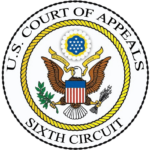 On December 13, 2022 the United States Court of Appeals for the Sixth Circuit issued the following proposed amendments to the Sixth Circuit Local Rules: Notice Pursuant to 28 U.S.C. § 2071(e), and 6 Cir. R. 47 United States Court of Appeals for the Sixth Circuit provides notice that it adopted the attached amendments to Sixth Circuit Local Rules 25 and205, effective January 1, 2023.
On December 13, 2022 the United States Court of Appeals for the Sixth Circuit issued the following proposed amendments to the Sixth Circuit Local Rules: Notice Pursuant to 28 U.S.C. § 2071(e), and 6 Cir. R. 47 United States Court of Appeals for the Sixth Circuit provides notice that it adopted the attached amendments to Sixth Circuit Local Rules 25 and205, effective January 1, 2023.
The court invited public comment on such amendments
United States Court of Appeals for the Seventh Circuit
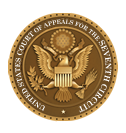 In September 2022, the Seventh Circuit issued a new order updating their COVID-19 procedures implemented at the start of the public health emergency. The Court has resumed in-person oral argument, and the courthouse is generally open to the public. Counsel may, however, file a motion at least fourteen days before argument to present their argument via telephone or video conferencing, or to waive oral argument.
In September 2022, the Seventh Circuit issued a new order updating their COVID-19 procedures implemented at the start of the public health emergency. The Court has resumed in-person oral argument, and the courthouse is generally open to the public. Counsel may, however, file a motion at least fourteen days before argument to present their argument via telephone or video conferencing, or to waive oral argument.
Any attorneys or court staff entering the courthouse must sign a statement certifying that they either have not experienced COVID-19 symptoms, been in close contact with someone experiencing symptoms, or have isolated for the requisite 5+ days if they have tested positive. Face masks are no longer required unless the person has tested positive for COVID-19 within the previous 6-10 days or been in close contact with someone experiencing symptoms within the previous 5 days.
United States Court of Appeals for the Eighth Circuit
Recent Holdings: Expert Witness’s Lack of Comparable Expert Testimony at Federal Level Not Grounds for Inadmissibility
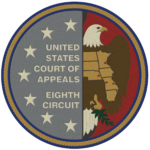 On March 6, 2023, the United States Court of Appeals for the Eight Circuit issued its opinion in United States of America Plaintiff v. Lonnie L. Perry, No. 22-1573, affirming the conviction of criminal-defendant Perry. Among other issues of appeal raised by the criminal-defendant, Perry asserted that forensic-ballistics testimony made by the prosecution’s expert witness should have been ruled inadmissible because “this was [the expert witness’s] first time doing ‘this specific comparison’ for a federal court case.”
On March 6, 2023, the United States Court of Appeals for the Eight Circuit issued its opinion in United States of America Plaintiff v. Lonnie L. Perry, No. 22-1573, affirming the conviction of criminal-defendant Perry. Among other issues of appeal raised by the criminal-defendant, Perry asserted that forensic-ballistics testimony made by the prosecution’s expert witness should have been ruled inadmissible because “this was [the expert witness’s] first time doing ‘this specific comparison’ for a federal court case.”
On this issue of inadmissibility, the Eighth Circuit was unpersuaded, stating: “Gaps in an expert witness’s qualifications or knowledge generally go to the weight of the witness’s testimony, not its admissibility.” (quoting Robinson v. GEICO Gen. Ins. Co., 447 F.3d 1096, 1100 (8th Cir. 2006)). Read the Court’s full opinion here: http://media.ca8.uscourts.gov/opndir/23/03/221573P.pdf.
United States Court of Appeals for the Ninth Circuit
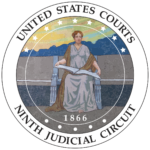 The United States Court of Appeals for the Ninth Circuit has adopted new and revised Circuit Rules, effective December 1, 2022.
The United States Court of Appeals for the Ninth Circuit has adopted new and revised Circuit Rules, effective December 1, 2022.
Click here for detailed information.
United States Court of Appeals for the Tenth Circuit
New Disclosure Statement Requirements
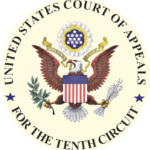 In case you missed it, the 2023 revisions to the Tenth Circuit’s Local Rules now require the filing of a stand-alone Fed. R. App. P. 26.1 disclosure statement at the beginning of the appeal, rather than in the party’s main brief. And the Diversity Statement requirement formerly found in 10th Cir. R. 26.1 has been relocated to 10th Cir. R. 28.2(C)(6), which appears with the listing of other principal brief requirements, now called a “Citizenship Statement.”
In case you missed it, the 2023 revisions to the Tenth Circuit’s Local Rules now require the filing of a stand-alone Fed. R. App. P. 26.1 disclosure statement at the beginning of the appeal, rather than in the party’s main brief. And the Diversity Statement requirement formerly found in 10th Cir. R. 26.1 has been relocated to 10th Cir. R. 28.2(C)(6), which appears with the listing of other principal brief requirements, now called a “Citizenship Statement.”
Bonus: The Tenth Circuit has a YouTube channel, where the public can listen to the day’s oral arguments.
United States Court of Appeals for the Eleventh Circuit
The Court May Refine Some Motion Procedures
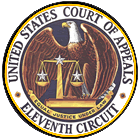 11th Cir. R. 27-1 sets out the local practice relating to motions. With its proposed changes issued late last year, the Rule would specify that the Clerk is only authorized to rule on a party’s first motion to reinstate an appeal (proposed 11th Cir. R. 27-1(c)(5)). And the changes would also add out-of-time motions to the list of unopposed motions within the Clerk’s purview, so long as the filing is made no more than 14 days after the due date (proposed 11th Cir. R. 27-1(c)(11)).
11th Cir. R. 27-1 sets out the local practice relating to motions. With its proposed changes issued late last year, the Rule would specify that the Clerk is only authorized to rule on a party’s first motion to reinstate an appeal (proposed 11th Cir. R. 27-1(c)(5)). And the changes would also add out-of-time motions to the list of unopposed motions within the Clerk’s purview, so long as the filing is made no more than 14 days after the due date (proposed 11th Cir. R. 27-1(c)(11)).
United States Court of Appeals for the Federal Circuit
Notice of New Federal Circuit Rules, Court Forms, Guides, and Filing Resources
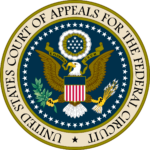 The March 1, 2023 amendments to the Federal Circuit Rules have officially gone into effect. The final version of the Federal Circuit Rules (pdf) is available on the court’s website and will apply to all cases filed or pending on or after March 1, 2023, to the extent practicable. The Federal Circuit has also adopted changes to many of its official forms, including forms 1, 5, 6, 8B, 9, 9A, 16, 18, 24, 32, and 33. These forms should be used, as required, for any filings made on or after March 1, 2023. All updated and existing forms are located on the court’s website.
The March 1, 2023 amendments to the Federal Circuit Rules have officially gone into effect. The final version of the Federal Circuit Rules (pdf) is available on the court’s website and will apply to all cases filed or pending on or after March 1, 2023, to the extent practicable. The Federal Circuit has also adopted changes to many of its official forms, including forms 1, 5, 6, 8B, 9, 9A, 16, 18, 24, 32, and 33. These forms should be used, as required, for any filings made on or after March 1, 2023. All updated and existing forms are located on the court’s website.
As part of the implementation of these amendments, the Clerk’s Office issued updated versions of the Electronic Filing Procedures (pdf), Guide for Oral Argument (pdf), Guide for Unrepresented Parties (pdf), and additional content throughout the court’s website.
***
Notice of Adopted Amendments to the Federal Circuit Rules of Practice
Pursuant to 28 U.S.C. § 2071(b) and Federal Circuit Rule 47(a), the United States Court of Appeals for the Federal Circuit has adopted amendments to Federal Circuit Rules of Practice 25, 26, 27, 28, 28.1, 30, 31, 32, 33, 33.1, 34, 35, 39, 40, 41, 47.4, 47.5, and 47.6. The court received and reviewed public comments on the proposed amendments, and the court has ordered the adoption of the proposed amendments, as amended, effective March 1, 2023.
The court’s website contains the court’s order adopting these amendments, a draft proof copy of the Federal Circuit Rules of Practice, a summary of the adopted amendments, and an explanation of substantive modifications to the proposed amendments following the public comment period.
The full notice is available on the court’s website.
United States Court of Appeals for the District of Columbia Circuit
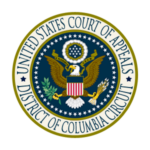 In case you missed it, the D.C. Circuit has enacted a “courthouse decorum” policy effective December 13, 2022. The policy is aimed at prohibiting demonstrations or disturbances within the courthouse. The policy defines demonstrations as “demonstrations, picketing, speechmaking (unless authorized), marching, holding vigils or religious services, carrying or wearing signs, and all other forms of like conduct…when such conduct is likely to draw attention or impede the administration of justice or the decorum of court proceedings.”
In case you missed it, the D.C. Circuit has enacted a “courthouse decorum” policy effective December 13, 2022. The policy is aimed at prohibiting demonstrations or disturbances within the courthouse. The policy defines demonstrations as “demonstrations, picketing, speechmaking (unless authorized), marching, holding vigils or religious services, carrying or wearing signs, and all other forms of like conduct…when such conduct is likely to draw attention or impede the administration of justice or the decorum of court proceedings.”
Anyone entering the courthouse will also be prohibited from “loitering, exhibiting disorderly conduct, or exhibiting other conduct that: (a) creates loud or unusual noise or a nuisance; (b) unreasonably obstructs the usual use of entrances, foyers, lobbies, corridors, offices, elevators, stairways, or parking lots; (c) otherwise impedes or disrupts the performance of official duties by government employees; (d) prevents the general public from obtaining the administrative services provided in the courthouse in a timely manner; or (e) is reasonably likely to improperly influence, intimidate, coerce, or threaten a witness, juror, grand juror, judge, and/or court personnel or otherwise impede the administration of justice.”
The policy notes that anyone who violates this policy may be removed from the courthouse, with the possibility of contempt sanctions or a permanent ban from the building.
